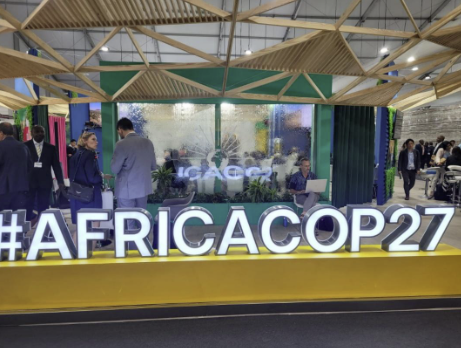Successes and Failures of COP27 to outline the path towards COP28 in Dubai


· 4 min read
The curtain falls on the twenty-seventh conference of the parties, the most important climate conference organized by the United Nations with the aim of acting in the fight against climate change. This year, 197 countries took part in the negotiations on the various issues discussed at the COP: from emission mitigation to adaptation plans, from losses and damages to climate finance.
Days after the conclusion of COP27, it is essential to analyze the text of the final agreement to understand which issues are still open that will be the protagonists of the path toward COP28, scheduled in Dubai from 30 November to 13 December 2023.
The final agreement was signed in the night between Saturday 19 and Sunday 20 November after intense days of negotiations. From the results of the final agreement, it's possible to say that COP27 will be remembered as a good but not great COP.
One of the elements for which we will remember COP27 is the "Loss & Damage" agreement. The theme of "losses and damages" has been fully recognized as a third pillar in the action against climate change, together with the Mitigation of emissions and the Adaptation to the effects. Thirty years after the first discussions, the parties have approved a compensation fund for the losses and damages suffered by developing countries. Developed countries have therefore recognized their historical responsibilities in generating climate change, agreeing to financially support developing countries, i.e. those countries least responsible for global warming but which will suffer the most relevant consequences.
The mission of COP28 will be to operationalize the fund, outlining its dimensions and criteria for accessibility by countries suffering Loss or Damage. Given the next Conference of the Parties, the decision to set up a committee that will guide the work on the design of the fund remains significant. The committee is composed of a majority of developing countries compared to developed countries: 14 vs 10.

However, COP 27 will also be remembered for the failure to agree on the "Phase out" of fossil fuels. The final agreement limits it to a weak "Phase Down" of coal. The objective of reducing the temperature rise to below +1.5°C compared to pre-industrial levels. At the same time, references to reaching peak emissions by 2025, strongly advocated by the IPCC, are eliminated. Considering the mitigation scope, COP28 will be the scenario for updating the Nationally Determined Contributions, i.e. the national commitments to reduce greenhouse gas emissions ratified in the Paris Agreement in 2015. At the dawn of COP27, only 33 of the countries present presented the update of their own NDCs.
Many questions remain open. Questions to which COP27 has not been able to give answers. In the coming years, attention will be paid to human rights, gender policies, the fight against discrimination in climate action, and climate migration. The inclusion of these issues in the initial draft of the agreement generated much enthusiasm, subsequently resized due to the removal of the paragraph in the final text.
The long way to human rights integration in the fight against climate change could pass through Brazil in 2025. In fact, in his speech at the Conference, the newly elected President Lula nominated Amazonia as the Host Country of the COP30. At the same time, he announced the establishment of a ministry for indigenous peoples, less resilient to the effects of climate change and strongly affected by deforestation activities.
Finally, one of the most important aspects was the youth participation in the decision-making processes. COP27 lays the foundations for an increasingly active role of young people within the negotiation mechanisms. For the first time in history, a Youth Delegate to the COP Presidency was appointed. This figure made it possible to bring the demands of young people onto the negotiating agenda. The Parties were therefore encouraged to build bridges between generations, involving young people in their decision-making processes. Young people, it is good to recall, are the people who will live in the climate that will be.
Future Thought Leaders is a democratic space presenting the thoughts and opinions of rising Energy & Sustainability writers, their opinions do not necessarily represent those of illuminem.
illuminem briefings

Corporate Governance · Adaptation
illuminem briefings

Sustainable Finance · ESG
illuminem

Adaptation · Biodiversity
CBC News

Climate Change · Biodiversity
Human Rights Watch

Adaptation · Environmental Rights
The Wall Street Journal

Public Governance · Sustainable Finance